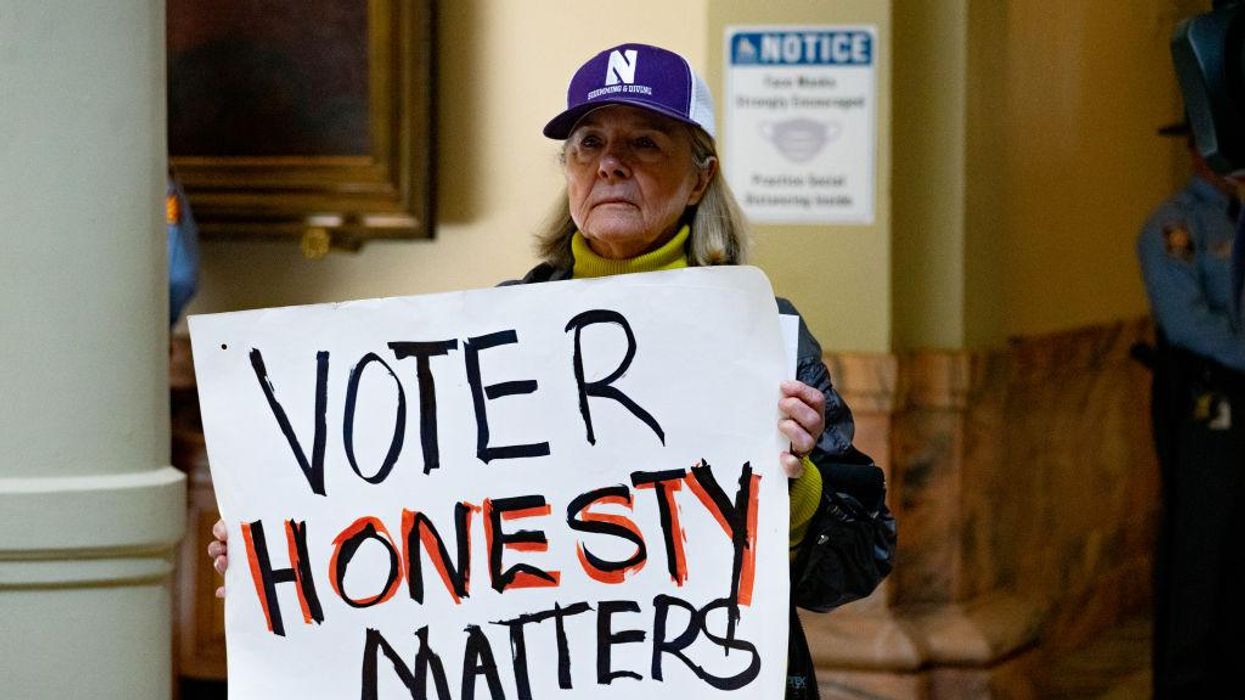
Megan Varner/Getty Images

A federal judge has denied an attempt by a left-leaning election integrity group to invalidate parts of Georgia's sweeping election law Wednesday, ahead of runoff elections for the state House, the Associated Press reported.
The Coalition for Good Governance had filed a lawsuit seeking an emergency order to block parts of the Georgia law related to election observation and the deadline to submit absentee ballot applications before the elections. But U.S. District Judge J.P. Boulee would not "change the law in the ninth inning," citing Supreme Court precedent that instructs courts to refrain from changing existing election rules when an election is imminent.
"Election administrators have prepared to implement the challenged rules, have implemented them at least to some extent and now would have to grapple with a different set of rules in the middle of the election," Boulee wrote in his order. "The risk of disrupting the administration of an ongoing election ... outweigh[s] the alleged harm to plaintiffs at this time."
While Boulee would not grant the emergency order sought by the plaintiffs, his ruling does not preclude parts of the Georgia law being struck down in the future, as the full lawsuit is still pending in federal court. The lawsuit is one of eight federal lawsuits challenging Georgia's election law.
Democrats and left-wing voting rights activists have lambasted the Georgia law, accusing Republicans of attempting to suppress the votes of black Americans and other minority groups through restrictive voter ID requirements and other changes. The Biden Department of Justice is currently suing Georgia, claiming that its new election law unconstitutionally discriminates against black Americans.
The Coalition for Good Governance's lawsuit challenged lesser-known provisions of the Georgia law, including a prohibition on observing how someone votes while they are in the midst of casting a ballot; a rule forbidding election observers to discuss information they see while processing and scanning absentee ballots with anyone besides other election officials; a ban on estimating the number of absentee ballots cast; a ban on photographing voted ballots; and a shortening of the time period to submit an absentee ballot application to at least 11 days before election day.
Reacting to the judge's decision, Georgia's Republican Secretary of State Brad Raffensperger said, "This is just another in the line of frivolous lawsuits against Georgia's election law based on misinformation and lies. We will continue to meet them and beat them in court."
Marilyn Marks, executive director of the Coalition for Good Governance, expressed disappointment with the order but vowed to press on with the lawsuit.
"We're concerned about the voter confusion that will no doubt occur with these little-known rapid changes to the rules, including the required information on ballot applications and the short deadline for applications to be received in this last week before the election," Marks said.